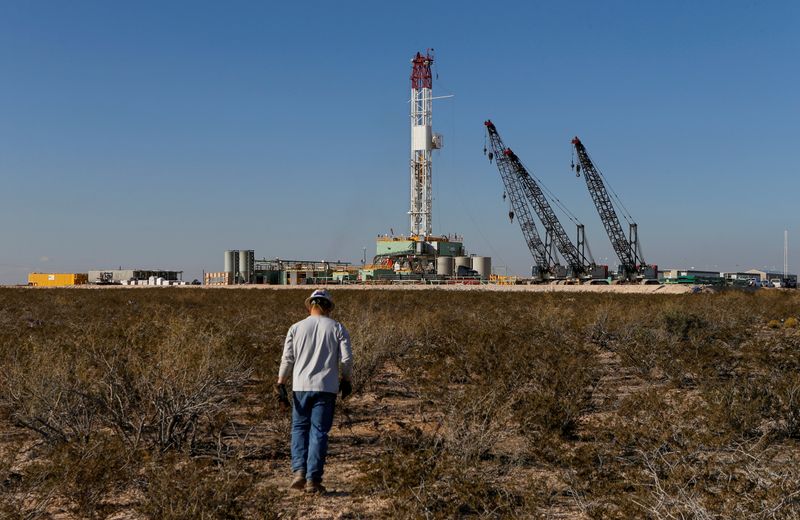By Laila Kearney
NEW YORK (Reuters) – Oil edged higher on Wednesday on expectations that U.S. President Joe Biden’s administration will deliver hefty pandemic-related economic stimulus that will lift fuel demand and enact policies that will tighten crude supply.
Biden, who was inaugurated on Wednesday, was set to take immediate measures to curb the U.S. oil industry, including a plan to re-enter the Paris climate accord, cancelling a permit for the Keystone XL crude oil pipeline and pausing planned drilling in the Arctic.
Brent crude settled at $56.08 a barrel, gaining 18 cents. U.S. West Texas Intermediate (WTI) crude settled at $53.24 a barrel, climbing 26 cents.
Prices, however, turned negative in post-settlement trade after data by industry group the American Petroleum Institute showed U.S. crude oil stocks unexpectedly rose last week, swelling by 2.6 million barrels to about 487.1 million barrels. [API/S]
Weekly government figures are being released on Friday. [EIA/S]
U.S. Treasury Secretary nominee Janet Yellen on Tuesday urged lawmakers to “act big” on pandemic relief spending, which boosted oil prices earlier in the session.
“There’s renewed hopes about the stimulus – there’s just a good mood in the markets overall, a sense of moving forward and that demand is going to be picking up,” said John Kilduff, partner at Again Capital LLC in New York.
Globally, supplies have tightened from a record output cut last year by OPEC and its allies, a group known as OPEC+, helping lift prices from historic lows.
This month, Brent hit an 11-month high of $57.42, helped by Saudi Arabia pledging to make additional, voluntary cuts and most OPEC+ members agreeing to keep output steady in February.
The expected moves to push for carbon reduction, if they restrict supply, could also boost prices.
“I think the Biden administration on day one is making it clear that there’s a new sheriff in town and we’re going to go back to policies that are pro-green energy and anti-fossil fuels,” said Phil Flynn, senior analyst at Price Futures Group in Chicago. “It’s going to mean higher prices and the market is starting to price in that reality.”
(Additional reporting by Alex Lawler in London, Sonali Paul in Melbourne and Shu Zhang in Singapore; Editing by David Goodman, David Gregorio and Richard Pullin)





